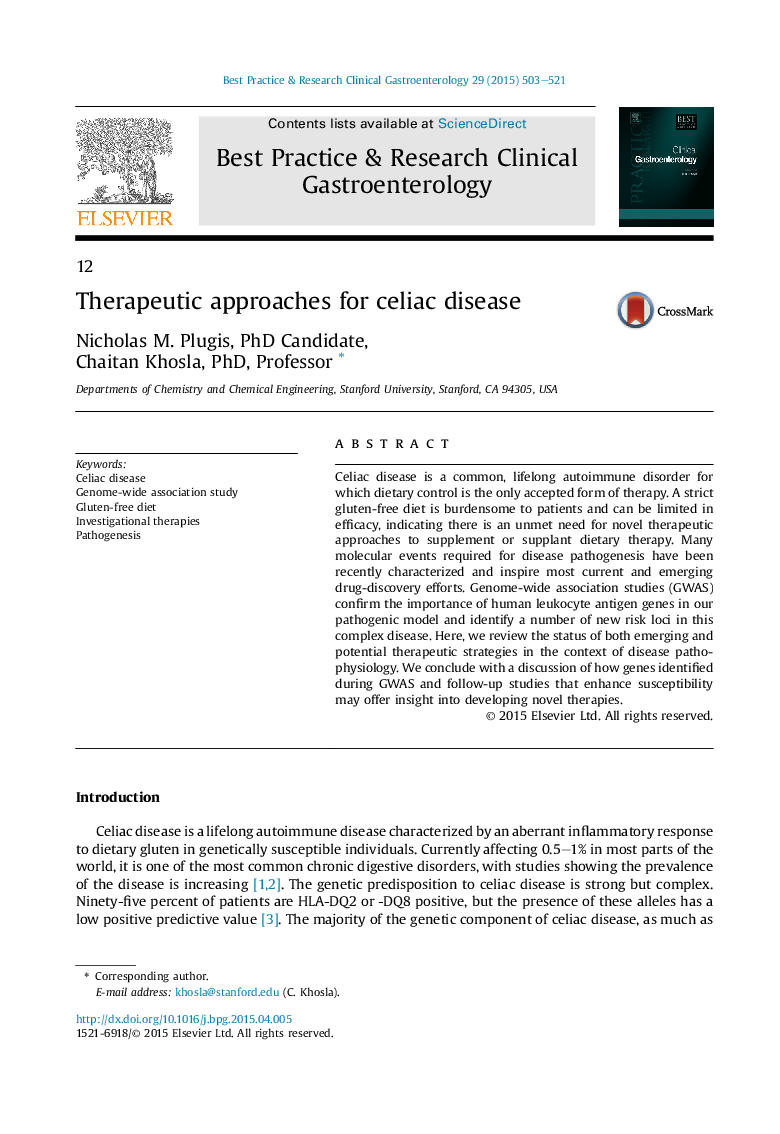| Article ID | Journal | Published Year | Pages | File Type |
|---|---|---|---|---|
| 3254242 | Best Practice & Research Clinical Gastroenterology | 2015 | 19 Pages |
Celiac disease is a common, lifelong autoimmune disorder for which dietary control is the only accepted form of therapy. A strict gluten-free diet is burdensome to patients and can be limited in efficacy, indicating there is an unmet need for novel therapeutic approaches to supplement or supplant dietary therapy. Many molecular events required for disease pathogenesis have been recently characterized and inspire most current and emerging drug-discovery efforts. Genome-wide association studies (GWAS) confirm the importance of human leukocyte antigen genes in our pathogenic model and identify a number of new risk loci in this complex disease. Here, we review the status of both emerging and potential therapeutic strategies in the context of disease pathophysiology. We conclude with a discussion of how genes identified during GWAS and follow-up studies that enhance susceptibility may offer insight into developing novel therapies.
